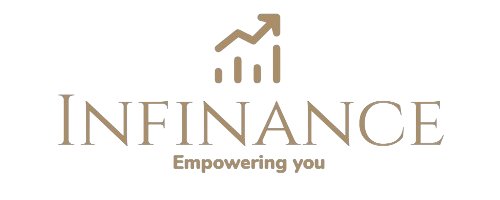Types of Loan: Which One is Best for You?
Loans are really important in money matters today. They help people and businesses reach their goals. Whether you want to buy a house, pay for school, get a car, or grow your business, knowing about different types of loan is key. Each loan has its own rules, rates, and perks, so picking the right one is crucial. This guide will talk about different loans, what’s good and bad about them, and how to pick the right one for you. You’ll learn a lot, and it’ll help you make smart money choices.
Types of loan
1. Personal Loans
Personal loans are versatile financial tools that individuals can use for various purposes such as consolidating high-interest debt, funding major purchases, covering unexpected expenses, or financing significant life events. These loans are typically unsecured, meaning they do not require collateral, and approval is based on the borrower’s creditworthiness, income, and financial history. The advantages of personal loans include flexibility in use, no need for collateral, fixed interest rates, and a predictable repayment schedule. However, they often come with higher interest rates compared to secured loans, can impact your credit score, and may include fees such as origination charges or prepayment penalties. Despite these drawbacks, personal loans can be a convenient solution for immediate financial needs, provided that borrowers carefully assess their financial situation and understand the loan terms.
2. Mortgage Loans
Mortgage loans are vital for buying property, serving as a foundation for homeownership. These loans use the property as collateral and come in fixed-rate and adjustable-rate options. Fixed-rate mortgages offer stable payments, while adjustable-rate mortgages can change based on market conditions. Benefits include lower interest rates and potential tax deductions, but they demand a long-term commitment, typically 15 to 30 years, with foreclosure risk if payments are missed. A down payment, usually around 20%, is required, though some programs offer lower options for first-time buyers. Buyers must weigh these factors carefully to find the right mortgage for their needs.
3. Auto Loans
Auto loans provide individuals with the financing needed to purchase vehicles, offering lower interest rates compared to unsecured loans and flexible repayment terms. These loans are secured by the vehicle itself, allowing borrowers to spread the cost of their purchase over time. However, borrowers should be mindful of potential downsides, such as the risk of owing more on the loan than the vehicle is worth and the requirement for comprehensive insurance coverage. Despite these considerations, auto loans remain a popular choice for those looking to buy a vehicle while managing their cash flow effectively.
4. Student Loans
Student loans are financial resources specifically designed to help individuals cover the costs associated with higher education, including tuition, fees, books, and living expenses. These loans are typically offered by both government entities and private lenders, providing students with the means to pursue their academic goals.
One of the primary advantages of student loans is their flexibility, as they can be used to finance various educational expenses. Additionally, many student loans offer deferred repayment options, allowing borrowers to postpone making payments until after graduation or leaving school. Some government-funded student loans also offer income-driven repayment plans, which adjust monthly payments based on the borrower’s income, making them more manageable.
However, it’s important to consider the potential drawbacks of student loans. Interest continues to accrue on student loans, even during periods of deferment, which can significantly increase the total amount owed over time. Additionally, borrowing too much can lead to a high debt burden after graduation, impacting the borrower’s financial future. Defaulting on student loans can have severe consequences, including damaged credit and wage garnishment.
Despite these considerations, student loans remain a valuable resource for many individuals seeking to pursue higher education. It’s crucial for borrowers to carefully evaluate their options, including grants, scholarships, and work-study programs, before taking on student loan debt. By making informed decisions and understanding their repayment obligations, borrowers can effectively manage their student loans and achieve their educational goals.
5. Business Loans
Business loans are financial products tailored to the needs of entrepreneurs and business owners, providing funding to support various aspects of business operations and growth. These loans can be obtained from banks, credit unions, online lenders, or government agencies, offering flexibility in terms of loan amount, repayment terms, and interest rates.
One of the key benefits of business loans is their versatility, as they can be used for a wide range of purposes, including starting a new business, purchasing equipment or inventory, expanding operations, or covering day-to-day expenses. Additionally, business loans often come with competitive interest rates and favorable repayment terms, making them an attractive option for entrepreneurs looking to finance their ventures.
However, securing a business loan may require meeting specific eligibility criteria, such as demonstrating a strong credit history, providing collateral, and presenting a solid business plan. Additionally, some lenders may require a personal guarantee from the business owner, putting their personal assets at risk in the event of default.
While business loans can provide valuable financial support, it’s essential for borrowers to carefully assess their business needs, compare loan options, and understand the terms and conditions before committing to a loan. By doing so, entrepreneurs can access the funding they need to fuel business growth while managing their financial responsibilities effectively.
6. Home Equity Loans and Lines of Credit
Home equity loans and lines of credit allow homeowners to borrow against the equity they’ve built in their homes. These loans typically offer lower interest rates than other forms of borrowing and may have tax-deductible interest payments. Home equity loans provide a lump sum upfront, repaid over a fixed term, while HELOCs function as a revolving line of credit. However, borrowers should be aware that these loans are secured by the home, meaning failure to repay could lead to foreclosure. Despite the risks, home equity loans and HELOCs can be valuable options for homeowners needing funds for expenses like home improvements or debt consolidation.
7. Payday Loans
Payday loans provide immediate funds to individuals in urgent need, typically without a credit check and minimal documentation. However, their accessibility comes with significant drawbacks. These loans carry exorbitant interest rates and short repayment windows, often as brief as two weeks. Consequently, many borrowers find themselves trapped in a cycle of debt, needing to take out additional loans to cover the original amount plus fees. This pattern can quickly spiral out of control, resulting in long-term financial instability and damage to credit scores. While payday loans may offer quick relief, borrowers should exhaust all other options before resorting to them and seek financial counseling if struggling with debt.
8. Credit Card Loans
Credit card loans, or cash advances, offer quick access to cash for cardholders but come with high interest rates and fees. Unlike regular purchases, interest starts accruing immediately, making them an expensive form of borrowing. While convenient in emergencies, borrowers should consider alternative options and aim to repay the borrowed amount quickly to minimize costs and avoid accumulating debt.
Choosing the Right Loan
Selecting the appropriate loan requires careful consideration of various factors to ensure it aligns with your financial needs and circumstances. Start by assessing the purpose of the loan—is it for a specific purchase, debt consolidation, or covering unexpected expenses? Next, evaluate your financial situation, including your income, credit score, existing debt obligations, and available collateral.
Compare loan options from different lenders, considering factors such as interest rates, repayment terms, fees, and eligibility requirements. Additionally, think about the long-term implications of each loan type on your financial health and future goals.
It’s essential to choose a loan that not only meets your immediate needs but also fits within your budget and enables you to comfortably manage repayments. By conducting thorough research and seeking guidance if needed, you can make an informed decision and select the loan that’s best suited to your circumstances.
Conclusion
In summary, selecting the right loan involves evaluating your needs, comparing options, and borrowing responsibly. By understanding the terms and considering your financial situation, you can make informed decisions that support your goals and financial well-being.







